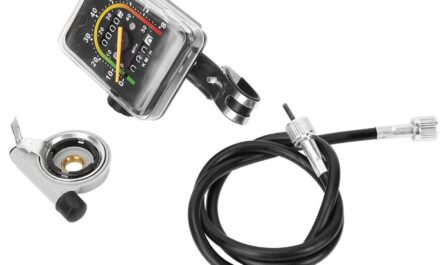
Advanced die casting technology incorporated with latest automated systems and robotics have significantly enhanced productivity and quality of die casted components. Die casting is a manufacturing process that injects molten metal under high pressure into a die cavity to form complex shapes for automotive and industrial components. Modern high-pressure die casting processes enable manufacturers to produce intricate metal parts with close dimensional tolerances in high volumes, which has increased the use of die casting across automotive, industrial machinery, electronics, and various other industrial segments.
The global die casting market is estimated to be valued at US$ 71.59 Billion in 2024 and is expected to exhibit a CAGR of 7.2% over the forecast period 2024 to 2031, as highlighted in a new report published by Coherent Market Insights.
The die casting process offers design flexibility and allows manufacturing of complex shapes that would otherwise be difficult or uneconomical to produce through conventional machining or molding. Die casting produces finished parts that do not require further operations like drilling, tapping, or filing, which makes the process highly economical for producing near-net-shape components in high volumes. Growing demand for lightweight and durable components from automakers is a major factor driving the adoption of die casting for engine blocks, cylinder heads, chassis components, and transmissions. Additionally, innovations in automation technology and integration of robotics have enabled precise die casting with reduced cycle times and labor costs. The global die casting market is expected to be further propelled by rising demand for consumer electronics and increasing penetration of die cast components in appliances, power tools, HVAC equipment and other industrial machinery.
Market key trends:
The rising popularity of aluminum die casting can be seen as one of the major market trends. Aluminum is increasingly replacing heavier metals like cast iron and steel in automotive and industrial components due to its light weight and corrosion resistance properties. Aluminum die casting facilitates the production of components that offer up to 50% weight savings compared to cast iron and steel counterparts. Light weighting has become a critical parameter for auto manufacturers to meet stringent fuel efficiency and emission norms. Another notable trend is the increasing use of magnesium alloy die casting for lightweight structural and safety critical automotive parts. Magnesium has a density nearly two-thirds that of aluminum and offers an attractive strength-to-weight ratio. Ongoing technological advancements are enabling finer details and geometric complexity in magnesium die cast parts.
Porter’s Analysis
Threat of new entrants: The die casting industry requires high capital investments for setting up manufacturing plants and procuring die casting machines and mold manufacturing facilities. This raises the entry barriers for new players.
Bargaining power of buyers: The presence of a large number of die cast product manufacturers with similar capabilities reduces the buyers’ bargaining power. However, large OEMs have relatively higher bargaining power.
Bargaining power of suppliers: The raw material suppliers have moderate bargaining power due to low switching costs and availability of substitutes. However, the high customization requirements reduce their power.
Threat of new substitutes: Plastics and composite materials pose a threat of substitution. However, die casting retains advantages in terms of performance and cost-effectiveness for high-volume production applications.
Competitive rivalry: The market is highly fragmented with the presence of numerous global and regional players. Price wars and high R&D investments to develop new alloys and process technologies have intensified competitive rivalry.
Key Takeaways
The global die casting market is expected to witness high growth.
Regional analysis reveals that Asia Pacific currently dominates the market led by China, followed by Europe and North America. The growth in Asia Pacific can be attributed to the increasing automotive production in China and India.
Key players operating in the die casting market are Alcast Technologies, Arconic, Consolidated Metco, Inc., Dynacast International Inc., Gibbs Die Casting, Ryobi die casting Inc., Bodine Aluminum, Martinrea Honsel Germany GmbH, Leggett & Platt, Endurance Technologies Ltd., Empire Die Casting Company, Alcoa Inc., Hitachi Metals Ltd, Nemak S.A.B. de C.V., GF Casting Solution AG, Shiloh Industries Inc., Rheinmetall Automotive AG, Sigma Electric Manufacturing Corp., Pace Industries, and Guangdong Yizumi.
*Note:
1. Source: Coherent Market Insights, Public sources, Desk research
2. We have leveraged AI tools to mine information and compile it

